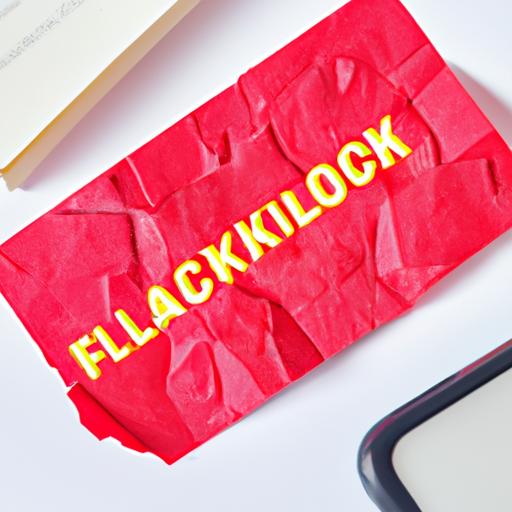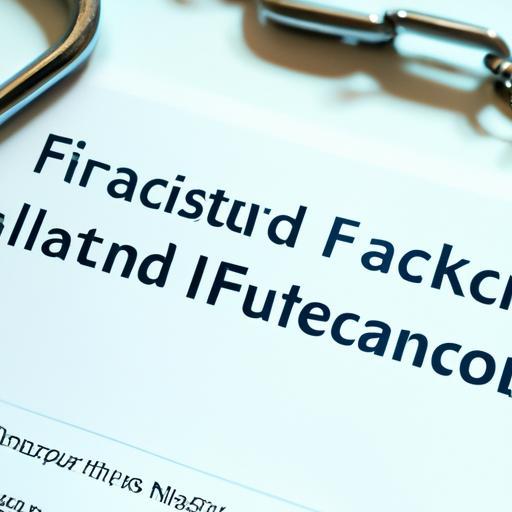In a world where trust is as valuable as gold, the healthcare industry is constantly battling against fraudulent activities that threaten the integrity of its systems. Enter blockchain technology – the innovative solution poised to revolutionize the way health insurance companies prevent and detect fraudulent claims. Leveraging the power of decentralized, transparent ledgers, blockchain offers a beacon of hope in the fight against deceit and deception. Let’s explore how this cutting-edge technology is changing the game when it comes to fraud prevention in the realm of health insurance.
Table of Contents
- 1. Leveraging Blockchain Technology for Fraud Prevention in Health Insurance
- 2. Understanding the Potential of Blockchain in Halting Fraudulent Activities
- 3. Securing Health Insurance Transactions with Blockchain Technology
- 4. Exploring the Benefits of Blockchain in Detecting and Preventing Fraud in Healthcare
- 5. Harnessing the Power of Decentralized Networks to Combat Insurance Fraud
- 6. The Role of Blockchain in Ensuring Transparency and Integrity in Health Insurance Claims.
1. Leveraging Blockchain Technology for Fraud Prevention in Health Insurance
One of the key benefits of leveraging blockchain technology in the health insurance industry is its ability to enhance fraud prevention mechanisms. By utilizing a decentralized and immutable ledger, health insurance companies can significantly reduce the occurrence of fraudulent activities such as false claims, identity theft, and billing scams. The transparency and auditability of blockchain technology make it easier to track and verify every transaction, ensuring that only legitimate claims are processed.
Furthermore, blockchain’s secure encryption and smart contracts can automate the verification process, flagging suspicious activities in real-time and triggering alerts for further investigation. This proactive approach not only protects the insurance company from financial losses but also safeguards the interests of policyholders by ensuring that their premiums are not affected by fraudulent claims. Ultimately, blockchain technology is revolutionizing fraud prevention in health insurance by introducing a more secure, efficient, and trustworthy system for all stakeholders involved.

2. Understanding the Potential of Blockchain in Halting Fraudulent Activities
Blockchain technology has shown immense potential in combating fraudulent activities across various industries. Its decentralized nature and immutable ledger make it a powerful tool in ensuring transparency and security in transactions. By eliminating the need for intermediaries and providing a transparent record of all transactions, blockchain significantly reduces the risk of fraud.
Moreover, the use of smart contracts in blockchain technology enables the automation of processes, reducing human error and minimizing opportunities for fraudulent activities. With its ability to provide a secure and tamper-proof system, blockchain has the potential to revolutionize the way we conduct business and prevent fraudulent practices.
3. Securing Health Insurance Transactions with Blockchain Technology
Health insurance transactions are a critical part of the healthcare industry, involving sensitive personal and medical information. Blockchain technology offers a secure way to handle these transactions, ensuring privacy and preventing fraud. By using a decentralized network of computers to verify and record transactions, blockchain eliminates the need for a central authority to oversee the process, reducing the risk of data breaches.
One of the key benefits of using blockchain technology in health insurance transactions is its ability to provide transparency and accountability. Each transaction is recorded on a public ledger that is accessible to all parties involved, creating a transparent and tamper-proof record of all interactions. This not only increases trust between insurers and policyholders but also streamlines the claims process, reducing the likelihood of disputes. Additionally, the use of smart contracts in blockchain technology allows for automated and self-executing agreements, further enhancing the efficiency and security of health insurance transactions.
4. Exploring the Benefits of Blockchain in Detecting and Preventing Fraud in Healthcare
Blockchain technology has been making waves in the healthcare industry by providing a secure and transparent platform for detecting and preventing fraud. With its decentralized nature, blockchain enables healthcare organizations to securely store and share sensitive patient data in an immutable ledger, reducing the risk of fraudulent activities. By leveraging blockchain, healthcare providers can ensure the integrity of medical records and authenticate the identity of patients, thereby minimizing the chances of medical identity theft.
Furthermore, blockchain’s ability to create a tamper-proof audit trail makes it easier for healthcare organizations to track the flow of data and identify any unauthorized access or modifications. This ensures that patient information remains confidential and secure, safeguarding against fraudulent practices. By implementing blockchain technology, healthcare providers can enhance data security, improve compliance with regulations, and ultimately build trust with patients.**
**
5. Harnessing the Power of Decentralized Networks to Combat Insurance Fraud
Insurance fraud is a pervasive issue that costs the industry billions of dollars every year. By harnessing the power of decentralized networks, insurers can combat this problem more effectively. Decentralized networks offer increased transparency, security, and immutability, making it harder for fraudsters to manipulate or falsify data.
By leveraging blockchain technology, insurers can create a secure and tamper-proof record of policyholder information, claims history, and transactions. This decentralized system allows for real-time verification of data and ensures that all parties involved in a transaction have access to the same information. Additionally, smart contracts can be used to automate claims processing and reduce the risk of fraudulent activities. **Through collaboration and innovation, the insurance industry can revolutionize the way fraud is detected and prevented, ultimately creating a more trusted and efficient system for all stakeholders.**
6. The Role of Blockchain in Ensuring Transparency and Integrity in Health Insurance Claims
Blockchain technology has revolutionized the way health insurance claims are processed, offering unparalleled transparency and integrity throughout the entire process. By utilizing a decentralized ledger system, all parties involved in a claim can access and verify the information, ensuring that every step is recorded accurately and securely.
With blockchain, fraudulent claims are virtually eliminated, as every transaction is transparent and immutable. This not only saves insurance companies money, but also streamlines the claims process for patients, leading to quicker reimbursements and better overall customer satisfaction. In addition, blockchain technology allows for automated verification of claims, reducing the need for manual intervention and decreasing the likelihood of errors.
the potential of blockchain technology in preventing fraud in health insurance is both promising and intriguing. By providing a secure and transparent platform for storing and managing sensitive data, blockchain has the ability to revolutionize the way we combat fraudulent activities in the healthcare industry. As we continue to explore the possibilities of this innovative technology, it is clear that the future of fraud prevention in health insurance is in good hands with blockchain. Let us embrace this exciting journey towards a more secure and reliable healthcare system.
